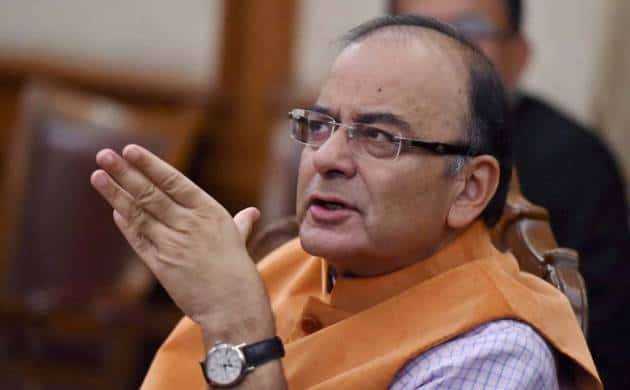Washington: India is at the world’s centre stage more than ever before for “aspiring to do better in an adverse” environment, Finance Minister Arun Jaitley has said, simultaneously cautioning that the country’s current growth rate is not enough by its own yardstick.
“More than even before we are at the centre stage. That you would have to admit. But, I would put a caveat. India has become far more aspirational than ever before. So compared to the rest of the world, we are doing much better. Compared to our own yardstick, we feel, this is not enough,” Jaitley told Indian reporters at a news conference.
“We can do still better, which in a sense is not a bad thing to happen. To be restless, to be impatient is a sign of wanting to do better,” said the Minister, who is leading the high-power Indian delegation to the annual fall meeting of the International Monetary Fund and the World Bank.
“For the rest of the world whereas we aspire to do better in this adverse environment, they consider it extremely impressive. So there is a lot of global buzz around India,” he said.
As per the latest forecast by the IMF and the World Bank, India is projected to grow at 7.6 perent in the next two years, which makes it the world’s fastest growing emerging economy.
“I think, with the kind of economic activities and investments that we have planned over the next several years it (growth) is not likely to go down,” Jaitley said in response to a question.
And it might have an impact only if unforeseen events do not happen, he said.
“I think with the kind of investments, both domestic and international, that we are getting, a reasonable amount of growth will always be there. If growth returns to the world, then you would probably move up. Structural reforms like GST can only add to that,” Jaitley said.
Noting that the world is moving slowly, the Finance Minister said nobody seems to be sure how long this situation would continue.
There is no specific global response, even though there are generalities to fight the situation.
“In India, we have to learn to live in an environment where the world is going to move slowly and the world is not going to be very supportive of growth. The global environment is not very supportive of growth,” he said.
Since India is growing much faster, as compared to the rest of the world, it has become a natural recipient of a higher level of FDI, he added.
“Good monsoon, pay commission, reasonable growth rate, domestic demand including rural demand has picked up,” Jaitley said, adding that structural reforms in India today, in terms of direction and taking decision, are easier than ever before.
Increased expenditure in infrastructure and investment would keep growth growing, he said on October 8.
Identifying an unsupportive global environment and stagnant investments in some private sectors, Jaitley said that the country can still do better, adding, however, that three public sector banks need to become stronger and get out of the NBA scenario.
“And if the world starts growing faster as it did between 2005 and 2008, then we can expect higher growth rates. But for India to maintain its present level of growth is possible,” Jaitley said.
GST, he said, has a potential to add to the growth for several reasons.
“It is a more efficient tax. It would make trade easier. It would make services and movement of goods easier. For instance, the average time take in sending goods from one part of the country to the other would eliminate, there would be a tax on tax, in terms of costing also, products would become more efficient,”he said.
A three-day council meeting is scheduled from October 18 to settle the rates. However, Jaitley said he hopes to reach the target by April 1.
During his four-days visit, Jaitley had a series of bilateral meetings with his counterparts from key countries, including the US, Britain and China. He also had bilateral talks with finance ministers of Iran and neighbouring countries Bangladesh, Bhutan and Sri Lanka.
Economic Affairs Secretary, Shantikanta Das, said the measures being taken by the government in the last two years have unleashed a lot of possibilities and potentialities into the system.
“Slowly their impact is being felt. It is unfolding,” he said, adding that India received USD 55.6 billion in FDI last year that is likely to enhance growth opportunities.

